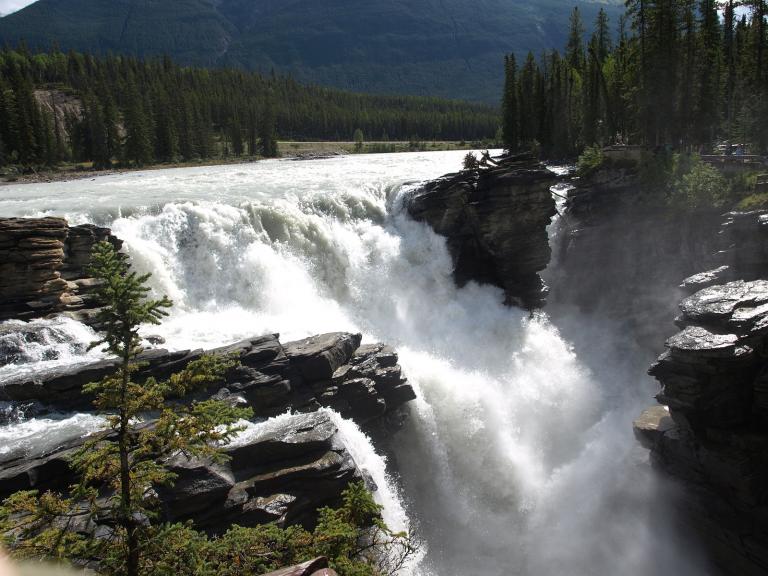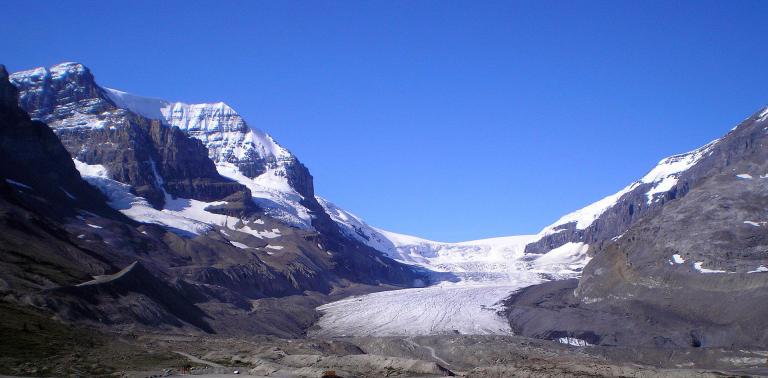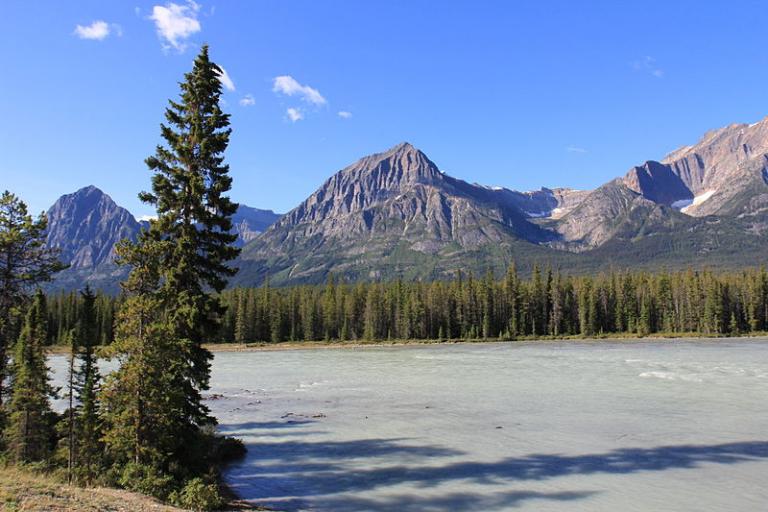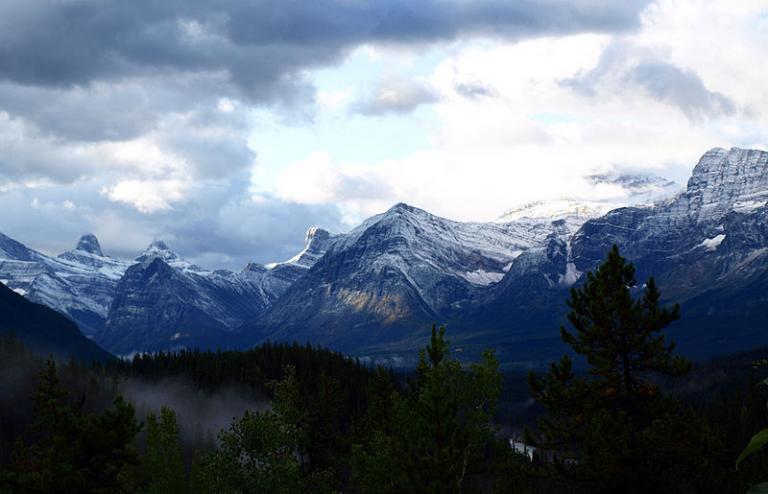
Athabasca. Athabaskan. For some reason, I like the sheer sound of the word.
I’ve been vaguely aware, for many years, of a family of native American languages called “Athabaskan” (or some variant spelling of that adjective). It includes, as its most populous group of speakers, the Navajo, but it also includes the languages of the Plains and Western Apache. Beyond those groups, though, and perhaps somewhat surprisingly, its largest contiguous pre-Contact geographical region stretched across what is today Alaska, the Yukon, and Canada’s Northwest Territory, and outlying concentrations of Athabaskan speakers lived before the coming of the Europeans down along the Pacific coast into Oregon and even modern California.
Anyway, that’s neither here nor there.

However, the word Athabasca has taken on a whole new and more concrete meaning in my mind during this trip. (I don’t know why it hadn’t hit me, or at least stuck with me, from my previous trips here, but it didn’t.) We’ve visited Athabasca Falls, for example, and enjoyed driving along the Athabasca River, admired Athabasca Pass, and walked on the Athabasca Glacier.

(Wikimedia Commons public domain photograph)
This wasn’t our first time on the Athabasca Glacier. It’s part of the Columbia Icefield, which is the largest icefield in the Rocky Mountains. We’ve visited it at least one previous time — a time of which I still have a very vivid memory:
As we were leaving, having walked down the steps from the visitor center toward the parking lot, my eldest son, then probably in his very early teens and in a playful mood, hit me with an unexpected football block. I brought my arm up to my side to defend myself. But he hit me in just such a way, or my arm transmitted the force of his hit in just such a way, that it broke one or more of my ribs.
The pain was intense. He was laughing, unaware that he had hurt me. I wanted to tell him, but, for what seemed a full minute or so, I simply couldn’t breathe. I certainly couldn’t speak.
It changed the complexion of the rest of that vacation. I could scarcely sleep, and every bump on the road was excruciating. And this lasted for weeks thereafter.
Walking from the parking lot toward the steps this time, the memory was still extremely clear.

But so now will be the memory of where the principal homeland of the Athabaskan languages was (and, presumably, still is).
Posted from Canmore, Alberta, Canada











